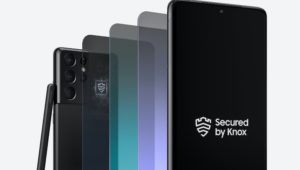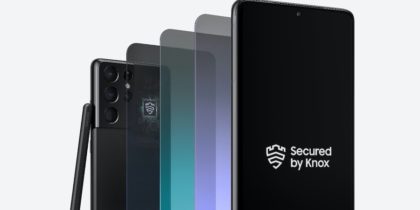Mobile technology is an increasingly important part of the business world, and the public sector is taking advantage. Given the popularity of mobile devices in organizations, federal mobile security remains an issue that should be addressed.
According to a 2014 study by Government Business Council, 72 percent of federal government employees use mobile devices for work purposes. The vast majority of these devices, 58 percent, are issued by employers. The top benefits are flexibility, enhanced communication and remote data entry and access, followed by efficiency gains, cost savings and improved employee morale. Despite these benefits, only 13 percent of those surveyed see expanding the use of mobile technology as a high priority for their organizations. The majority of respondents, 55 percent, view the security of mobile devices as the top challenge to expanding their use mobile technology.
Security Is a Major Concern
Federal mobile security remains a key challenge, with security accounting for three of the top four concerns of those surveyed. Malware, theft and loss of devices are cited as the top security concerns, followed by unsecured mobile apps, employee error and eavesdropping.
In order for government employees to determine how secure their mobile security practices are, Samsung developed a self-assessment tool for agencies to use. Each participant who took the self-assessment received a mobile security score, which was then extrapolated to the agency for which they work. The top scoring agencies were found to be the Department of Labor, the General Services Administration and National Aeronautics and Space Administration, all of which scored above the average for all agencies, which was 54.5 out of 100.
The assessment also looked to gauge the state of federal mobile security to see if the mobile habits of employees are putting their agencies at risk. It found that 93 percent of respondents use mobile devices to access email, which often contains sensitive information. However, mobile security apps are used by less than one-third of respondents. Almost three-quarters use just a basic PIN or swipe passwords to access their devices, rather than two-factor or biometric authentication. One-third of respondents don’t back up their mobile data, and only 53 percent have the ability to remotely wipe their devices in the event of theft or loss.
“What the data suggests is that the federal workforce is increasingly reliant on mobile technologies to accomplish their missions,” says Will Colston, general manager of operations at Government Executive Media Group. “But at the same time, many are still engaging in risky behaviors when mobile security should be a top-of-mind concern.”
Better Security Is Needed
Government Business Council research found that less than half of respondents felt they received adequate training in security and what was expected of them. They also felt more confident in terms of security when using a device provided to them by the agency for which they work, citing the reliability of their employer’s mobile security solution as the main reason. This led two-thirds of them to believe that separate devices should be used for work and leisure purposes.
This belief, however, is at odds with the organizational goal of reducing the overall spend on mobile devices. In order to reconcile this difference, federal agencies should do more to enable BYOD programs, which will not only reduce costs, but also will increase user satisfaction. This is because employees can then use the device of their choice for both work and leisure.
One factor that will help to increase user choice and ensure high levels of security is to develop and enforce a policy that requires the use of mobile devices for which a mobile security platform can be enabled. Mobile devices featuring Samsung KNOX provide suitable capabilities, including the use of containerization so that work data and applications can be held and accessed in a separate container from leisure data and apps. Samsung KNOX also features hardware-based security features that prevent devices from being tampered with or rooted, giving agencies peace of mind that their sensitive data is safeguarded.
Increased mobility can help to boost collaboration and productivity, provide workers with flexibility and help to speed decision making, but only if a priority is placed on security. As seen in these surveys, more could be done to boost federal mobile security. The self-assessment tool should serve as a wake-up call to those agencies that are found to be lagging so that they can improve their security posture and embrace the full benefits that increased mobility brings.
The State of Federal Mobile Security from Samsung Business USA










